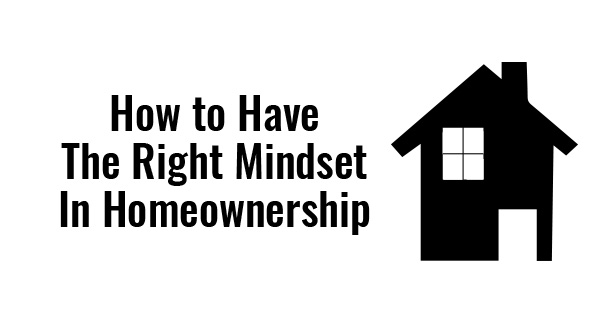 When considering home ownership, you might be running around trying to make sense of everything. Here’s some things to consider before you pull the trigger on buying a home.
When considering home ownership, you might be running around trying to make sense of everything. Here’s some things to consider before you pull the trigger on buying a home.
Buying vs renting
Many people or are encouraged to think differently about owning a home because they are conditioned or told that owning a home to live in is, or is not an investment. And the truth is, it is not an investment in the traditional sense, as in, it is not going to be an asset that generates cash flow as an investment would.
Secondly, and this is where more of the strong feelings like when it comes to whether a home is an investment or not, in the case where you are able to sell the house for more than you bought it, it could be considered an investment. In this case, it typically means that the market has increased and/or you’ve made it nicer or made some improvements to the home. Regardless, a home that you buy to live in doesn’t make you money unless you sell it. And if you sell it, you still have to live somewhere. So, many money and real estate gurus do not consider a home purchase as a necessary element in your investment portfolio.
But when considering buying a house for you or your family to live in, there is a lot more too it than that.
First, if you pay off the house early, then you can minimize your expenses more than if you were renting. Yes, there are still a rising taxes to consider but you should still be on top if you’ve paid off your house since you won’t experience any fluctuating rent charges. Owning a home is an asset that can contribute to your investment portfolio significantly in its ability to grow and increase in leverage by minimizing expenses if you focus on paying it off faster. Having a home gives you more control than paying to rent a place.
In my case, when my wife and I bought our first house we were hoping to stall our rising apartment rental expenses by gaining a home and a mortgage loan with taxes that was lower than renting an apartment. We were able to accomplish this and received an additional bathroom and two more bedrooms. All of this was by buying a house with only a $100,000 mortgage.
Regarding the mortgage payment itself, our realtor shared a good piece of advice, with each $10,000 you buy on a house, you have an additional $100 of mortgage to pay per month.
How to Think About Where and What to Buy
A house is typically going to require a higher price based on two things: how desirable is the area and how updated is the house? Buying the right house at the right price of course takes some patience.
First, location, location, location should be priority #1. You want to buy in a location that makes the most since for where you are working now and where you have access to more jobs as well as the community that might be a good fit for your family. Consider that you might be in a location longer than you anticipate. If that is the case, say, you end up needing to stay there longer than a 5 year mark and it ends up being much longer, would you be okay with that as far as the quality of the neighborhood, location to other work opportunities, or just the overall condition of the house?
Keep in mind that how updated the house is and the reason for demanding a higher price than another one of similar size down the street could simply be cosmetics, i.e. a new paint job and some minor repairs. You would be surprised how many people buy on an impulse and because something looks pretty! It’s important that you do your due diligence to look at not just the exterior but try to see through to the condition of the house, look in the attic, and in the crawl space (if it’s a peer and beam foundation). It helps if you have some house construction experience, like I do, to know what a house with good bones looks like. I can look at a dump and know whether it really is a dump or if it just needs some work. I can also look at a house that has been cosmetically cleaned and know if there is structural damage or if it is truly a house which has good bones. I also know how much work and how much cost and time a house repair job typically takes, at least how much variation there is if you are contracting out work or doing it yourself. This kind of knowledge is very helpful to know when buying a house. It can help significantly in a hot sellers market that is tight and when the cost of real estate is rising. If you don’t have this construction background, you can probably find someone who does and who would love to help you out with a simple walk through of the house with them if you are planning to go through with the purchase of a house.
Buying Your Forever Home and Renovating
Many confront the idea of finding a house they want to live in forever. Along with this mindset is typically the desire to spend insane amounts of money to renovate it to make the house exactly what you want. There’s a reason Fixer Upper was such a popular show. People want the best of the best when it comes to their home. And I certainly get it. What I don’t get is adding renovation debt in addition to a mortgage debt. I prefer taking care of the mortgage debt first before doing significant home repairs. My goal is to buy a house to live in with the goal of actually owning the home – not the bank. Assuming you didn’t pay cash for the house, remember that you don’t own actually own the home until you have paid the bank back for the mortgage loan in full.
It is a scary reality when we have the ability to use other people’s money to renovate a home and live in it without owning it with only a promise of paying it back and an assumption that we will continue to make the same money or more money into the future. Now, most of you will see your income grow. But that’s not a guarantee! Remember that before you go into debt on a house that doesn’t make you money, it is an asset that functions like a liability in that it is an expense.
Owning Your Home Outright
If you set yourself up in the right position when you buy, it is a reality that you can experience much earlier – to own your home outright. But it will still take years of diligence in paying additional principal if you want to do it early. Otherwise it will be 15 or 30 years if you pay the minimum payment when you are free from the mortgage with the interest payments!
Consider whether you want to own the home outright or want to be like everyone else and pay the minimum payment.
Even my friends who bought a home their house, meaning that they have a mortgage on a house, i.e., they have a loan on a house, do not consider their home an asset because it does not make money for them and they have to live somewhere. Most want to act like it is their home and they believe it is, but it is not. This simple mind change is important. The next step most that believe they already own the home is that they should enjoy the house while they live in it which means they want to get another loan to renovate. I believe in this concept but it is in the wrong order. They do not actually own their house.
There is a mindset with home ownership that a house to live in is not an investment, and since it is an asset but doesn’t make money, it is a liability. But, you can’t say a home is always a liability, especially if the house is paid off. So, when done right, home ownership can be an opportunity for expense reduction and a catalyst for investing, regardless of your income, because you can spend your ‘housing’ expenses somewhere else.
When buying a home, it is best to be confident that you’ll be there for a minimum of 5 years. That’s a good rule of thumb to go by to make sure that you have the patience to wait out the market if it goes down.
Finally, American cultural consumerism has conditioned us to buy only the best. But remember, you have to pay for it too. Many are already considering their second house purchase after buying their first. The tendency, if the income and career keeps moving forward in a positive direction is to buy the first house a little more reasonably and then if everything is good then to go bigger on house #2.
Regardless of your perspective, before following that route of buying the bigger home with the higher expenses and longer run rate to financial freedom, consider the possibilities for financial freedom earlier. You could save up for the additional increase in house #2 cost. Ideally, since you are already in the home owners market, it shouldn’t be continue to balloon out of reach (hopefully). Secondly, consider passive income options to bring in cash flow with buying other properties as an asset or a business idea to pay for the additional mortgage expense. The desire for me is to not become more indebted to the rat race and instead pursue staying in control of your financial future.

